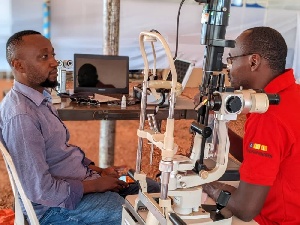Business News of Monday, 26 May 2025
Source: www.ghanawebbers.com
Roadmap to a safer future through Tobacco harm reduction: Reflections on the lives saved report, Nigeria and Kenya
Every year, many Ghanaians suffer or die from smoking-related diseases. Although smoking rates are relatively low, tobacco products still harm public health. Quitting smoking is difficult for many people. Tobacco Harm Reduction (THR) can be a lifesaving option.
Prof. Michael J. Russell said, “People smoke for the nicotine but die from the tar.” The goal should not be to criminalize nicotine use. Instead, we need safer alternatives that eliminate combustion—the main source of tobacco harm. Products like nicotine pouches, heated tobacco products, and e-cigarettes offer this opportunity.
These reduced-risk products have improved public health in countries like Sweden and Japan. However, awareness of THR and these alternatives is limited in Ghana. Many people do not know about these options or misunderstand their safety.
This lack of knowledge has slowed acceptance and adoption of harm reduction strategies in Ghana’s health policies. Currently, there is no comprehensive Public Health Act that includes harm reduction as part of tobacco control strategy.
The WHO’s MPOWER framework focuses on cessation and prevention but lacks support for harm reduction strategies. This is a missed opportunity for countries like Ghana with limited resources and healthcare systems.
Ghana needs a regulatory framework that recognizes the differences between combustible cigarettes and non-combustible alternatives. Such a framework would regulate traditional tobacco products more strictly while improving access to reduced-risk options for adult smokers who want to quit or reduce nicotine use.
Additionally, Ghana should conduct local research to inform its public health policies instead of relying solely on international data. Universities and research institutions should study smoking patterns and evaluate harm reduction effectiveness in Ghana.
Public awareness campaigns are also essential. Ghanaians need information about the dangers of smoking and available reduced-risk alternatives. Community leaders can help build support and counter misinformation.
Ghana has an opportunity to lead West Africa in innovative tobacco control measures. By incorporating THR into national efforts, advocating for supportive legislation, and investing in education, Ghana can save lives and ease the burden on its healthcare system.
The time to act is now. THR offers hope to many Ghanaians who want safer options than traditional smoking methods. With strong leadership and evidence-based policies, Ghana can set an example for Africa by prioritizing public health through innovation and compassion.











